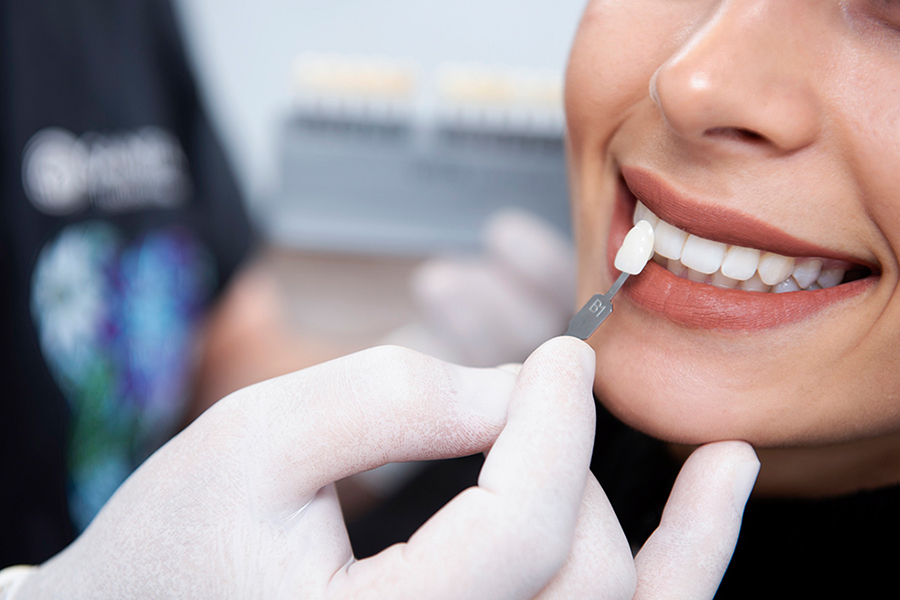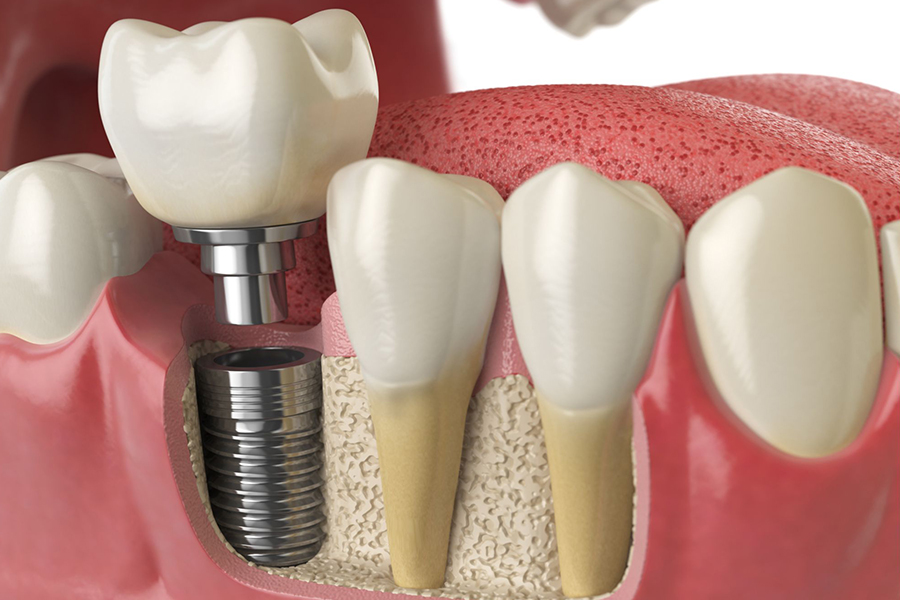
Bonding
Tooth bonding (dental bonding) is a cosmetic dental procedure that repairs a chipped, cracked, or otherwise broken tooth. It also helps with discolored teeth, gaps between the teeth, and even lengthening a tooth hat’s shorter than the rest.
The “bond” is a composite resin the takes over where your tooth broke to make it look as good as new.
Unlike a crown (used for fillings), the composite color will be similar to the color of the tooth, so it continues to look natural.
Why choose tooth bonding, even for a small chip?
Many people are most concerned with their smile, but fixing chips and cracks is also vital for your oral health in general. It helps you chew properly and prevents further damage that could even threaten the health of the surrounding teeth.

Crowns
First, let’s answer the question that’s likely on your mind: what is a dental crown?
Crowns are tooth-shaped caps that are placed over your teeth. They’re designed to cover your tooth to restore its shape, size, or strength. Crowns can improve the appearance of your teeth and smile.
Once a crown is cemented into place, it encases the visible portion of your tooth.
A dental crown can:
- Secure a dental bridge
- Mask discolored or misshapen teeth
- Protect a tooth that was weakened from decay
- Hold parts of a cracked tooth
- Restore the function and integrity of a worn-down tooth
- Support and cover filling when there’s not enough tooth left
Crowns are created using different materials, including metal and porcelain. Dr. Monika will choose the material based on where they’ll place the crown. The material can vary based on the durability and strength needed in that area.
Make sure to schedule a consultation appointment with Dr. Monika. They’ll review your treatment options to make sure a dental crown is right for you.

Implants
Dental implant surgery is a procedure that replaces tooth roots with metal, screwlike posts and replaces damaged or missing teeth with artificial teeth that look and function much like real ones. Dental implant surgery can offer a welcome alternative to dentures or bridgework that doesn't fit well and can offer an option when a lack of natural teeth roots don't allow building denture or bridgework tooth replacements.
How dental implant surgery is performed depends on the type of implant and the condition of your jawbone. Dental implant surgery may involve several procedures. The major benefit of implants is solid support for your new teeth — a process that requires the bone to heal tightly around the implant. Because this bone healing requires time, the process can take many months.
- Have one or more missing teeth
- Have a jawbone that's reached full growth
- Have adequate bone to secure the implants or are able to have a bone graft
- Don't have health conditions that will affect bone healing
- Are unable or unwilling to wear dentures

Veneers
A veneer is a wafer-thin, custom-made shell of tooth-colored materials designed to cover the front surface of teeth to improve your appearance while also providing strength and resilience comparable to natural tooth enamel. They are customized to the shape of your teeth and are bonded to the tooth’s original enamel during in-office procedures. Dental veneers can be made from porcelain or from resin composite materials. Below, we’ll take a closer look at the difference between those two.



